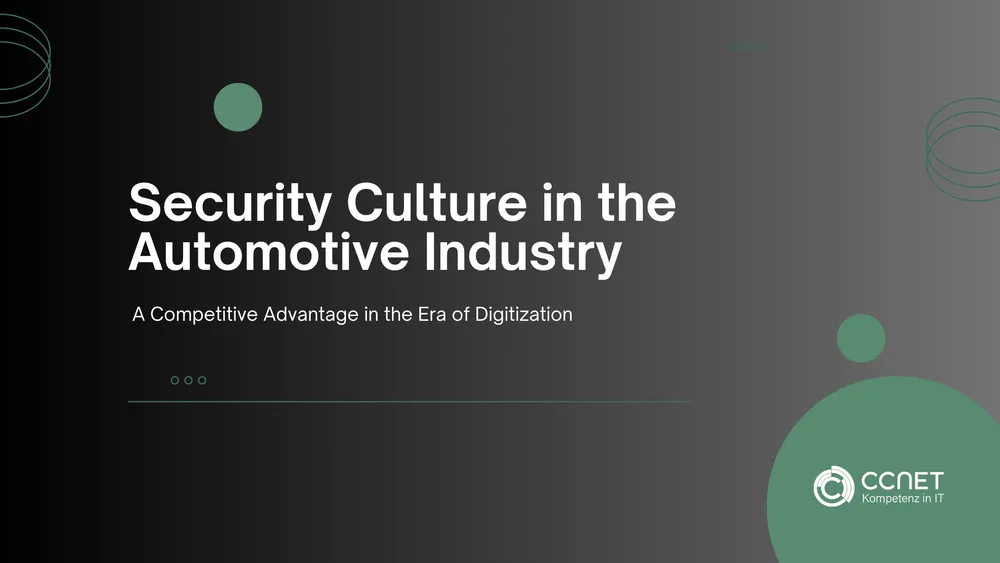
CCNet
Aug 16, 2024 • 2 min read

Digital Transformation in the Automotive Industry: The Need for Comprehensive Cybersecurity
The digital revolution is reshaping the automotive industry, bringing forth innovations like autonomous vehicles, electric propulsion, and connected services. However, with these advancements, the importance of cybersecurity becomes paramount, as highlighted in the Cisco Automotive Cybersecurity Study.
The Digital Revolution on Four Wheels
Vehicles are no longer just transportation tools; they are complex, connected systems offering various digital services. From remote maintenance to real-time navigation to personalized settings, vehicles are integrating into people's digital lifestyles.
Cybersecurity: A Central Element of Digital Transformation
Increased connectivity introduces unprecedented cybersecurity challenges. Cyber attacks can compromise sensitive data and endanger the physical safety of vehicle occupants. Ensuring cybersecurity is not only about data protection but also about public safety.
The Role of Automakers and Suppliers
Automakers and suppliers must integrate cybersecurity into vehicle design and development. Security features should be intrinsic to every new model, with continuous software updates and security patches being as crucial as mechanical maintenance.
Collaboration and Standardization
Industry-wide collaboration is essential for developing universal security standards and sharing best practices. Effective security solutions that address the challenges of digital transformation require cooperation among stakeholders.
The Role of Regulatory Authorities
Regulatory authorities can ensure cybersecurity by setting guidelines and regulations that compel automakers to adhere to high security standards while fostering innovation.
Consumer Awareness and Education
Consumer awareness is critical. Users need to understand cyber risks and how to protect their vehicles and data through software updates and security features.
Conclusion
As the automotive industry undergoes digital transformation, cybersecurity must be a central focus. Collaboration among stakeholders, adherence to standards, and consumer education are key to creating a secure digital infrastructure for vehicles. With comprehensive cybersecurity measures in place, the automotive industry can embrace digital innovation while ensuring safety and privacy for all stakeholders.
FAQ about the automotive industry
Why is cybersecurity becoming increasingly important in the digital automotive world?
Because connected vehicles are vulnerable to potential cyberattacks that can compromise both data and physical safety.
What are the dangers of a cyberattack on modern vehicles?
A hacked vehicle can become a real danger on the road, as systems such as brakes or steering could be manipulated.
What role do manufacturers and suppliers play in cybersecurity?
They must integrate security mechanisms into vehicle design from the outset and treat regular software updates like maintenance.
Why are security updates so crucial for vehicles?
Because they close known vulnerabilities and help prevent new threats – similar to security updates for smartphones.
Why is industry-wide cooperation necessary in automotive cybersecurity?
Common standards and the exchange of best practices increase the security of all vehicles – regardless of the manufacturer.
How can regulatory authorities contribute to cybersecurity?
Through clear regulations and security frameworks that set high standards while enabling innovation.
What responsibility do vehicle users have in the area of cybersecurity?
They should be informed about risks, actively use security features, and have regular updates performed.
Why is it important to educate users about cyber risks in vehicles?
Only informed users can consciously contribute to security and promote the responsible use of connected technology.


